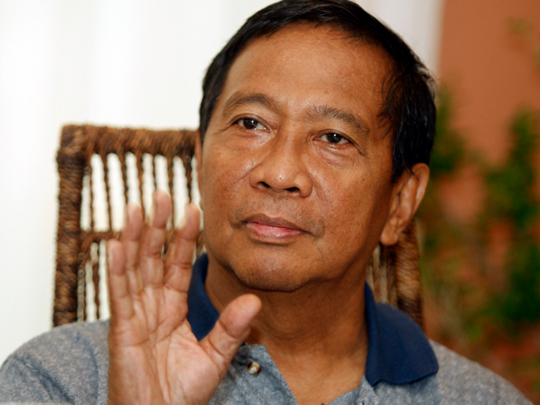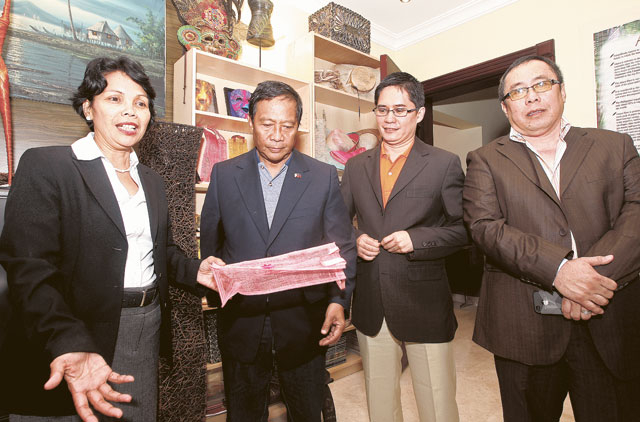
Abu Dhabi: The Philippine Bureau of Immigration's (BI) absolute discretion in "offloading" or preventing Filipino visit or tourist visa holders from flying to the UAE and other countries may soon be defined and limited, Philippine Vice-President Jejomar Binay told Gulf News during his brief visit to Abu Dhabi on Friday.
Binay, who is also the chairman emeritus of the Inter-Agency Council Against Trafficking (IACAT), said that such discretion could be the main reason why reports of extortion and unclear offloading practices abound at Philippine airports.
The IACAT recently met to form a technical working group to review the offloading policy and other extortion complaints lodged against immigration officials. The working group is expected to come up with its recommendations on the BI's policy next month.
Binay said that the 11-member council had agreed to join BI officials in the "offloading room" where suspected victims of human trafficking are held for questioning. This, the vice-president said, will help minimise abuse tendencies.
"We have agreed to come up with a set of clear-cut guidelines, a checklist of the questions that will be asked and documents to be presented. Other IACAT member agencies will accompany BI officials in interviewing [travellers]," Binay said.
Manila's Departments of Justice, Foreign Affairs, Labour and Employment, Social Welfare and Development, and the Philippine Overseas Employment Administration, and the BI, among others, make up the IACAT.
Additional closed-circuit television or CCTV will be placed in ‘hot spot' areas to monitor the immigration's screening process.
Advocacy group
Migrante-UAE, a Filipino workers' advocacy group, meanwhile said that the move is yet another process of discrimination.
"There will be more people or agencies discriminating against Filipinos who want to travel. What we would like to do is to do away with that selective process," Nhel Morona, secretary-general of Migrante-UAE, told Gulf News. "It will just lengthen the whole process altogether."
Earlier this month, an alliance of Filipino organisations led by Migrante-UAE symbolically binned copies of the affidavit of support and guarantee (AOS) to dramatise their campaign to scrap the travel document saying it was "unnecessary and has bred corruption among some BI officials".
The AOS is one of the documents presented by Filipinos before BI officials to prove that a relative or friend is financing his trip. The AOS is attested by the Philippine embassy in Abu Dhabi and consulate in Dubai for Dh100.
But a number of passengers had been barred from boarding their flights even with an AOS as they were suspected to be victims of human trafficking or tourist workers. Some have reportedly resorted to bribing immigration officials.
"Many claim that they are tourists but they are actually going to look for jobs abroad. This is a big problem because many end up being duped by recruiters," Binay said. "It is better to go through proper government agencies and to be documented [before heading for work abroad]."
Binay arrived in the UAE on Friday following his trip to Saudi Arabia earlier last week.







